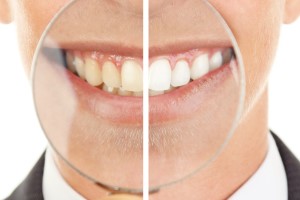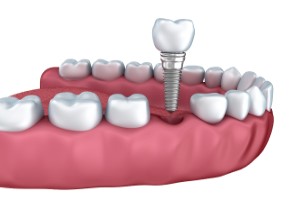When Should I Consider Restorative Dentistry Services?

Restorative dentistry deals with the diagnosis, treatment and prevention of oral problems. The dentist may recommend a treatment plan to restore a chipped, cracked, decayed, discolored or lost tooth. Any patient with a structurally impaired tooth qualifies for restorative treatment. The dentist may recommend a dental filling, implant, crown or bridge, depending on the nature of the problem.
When to consider restorative dentistry services
Restorative dentistry is designed to help people get a perfect smile after experiencing tooth damage or a cavity or undergoing a root canal treatment. Treatments to repair minor chips and cracks are available under restorative dentistry.
If one or more teeth are lost, they need to be replaced before the remaining gaps are prone to invasion by plaque bacteria, which could cause an infection. Missing teeth puts undue strain on existing teeth and could even lead to crookedness.
Severe stains and discoloration on the teeth can be removed with professional teeth whitening. However, some stains are intrinsic and cannot be cleaned off with chemicals.
Options available in restorative dentistry
Dentists often use four main types of dental materials for dental restoration: porcelain, amalgam, composite resin and gold. They can be deployed for use in any of the following restorations:
Dental fillings
If a tooth is severely decayed or a previous filling gets damaged, the dentist can use dental fillings to restore the appearance of the tooth. The composite resin material is mostly used for the front teeth because they can be customized to match the tooth color. Most patients prefer this option because they are hardly noticeable in the mouth.
Veneers
Usually created from porcelain or composite, they are tooth-colored restorations for hiding flaws on the teeth. Veneers are cemented onto the surface of the teeth, usually the front set of teeth to improve their appearance. They can be used for chipped, cracked or broken teeth. The dentist can also use them for minor orthodontic misalignments.
Dental crowns
Crowns are dental restorations for covering the portion of the tooth from the gumline upward. They are usually used to strengthen a damaged or cracked tooth or a tooth that has recently undergone root canal treatment. Dental crowns can be created from gold, porcelain or ceramic materials.
Dental crowns are also attached to dental implants and bridges to complete a tooth restoration procedure. A dental bridge is a restoration option for one or more missing teeth. They consist of crowns and are anchored to the teeth adjacent to the gap.
Other options under restorative dentistry include:
Composite bonding: This option can help restore the size or shape of a damaged tooth to enhance the appearance of the teeth.
Root canal: When severe decay occurs and the tooth pulp becomes infected, the dentist will perform a root canal procedure to remove the infected pulp and clean the tooth roots.
Implants: The most stable tooth restoration option, implants are small titanium screws inserted into the jaw to replace a lost tooth.
Final note
Restorative dentistry is necessary to restore the appearance of the smile when a patient suffers oral health issues. Patients can book an appointment with the dentist for an evaluation to know which treatments will be beneficial for their teeth.
Request an appointment here: https://jacksonheightdental.com or call 82nd St. Dental at (718) 476-5555 for an appointment in our Jackson Heights office.
Check out what others are saying about our services on Yelp: Read our Yelp reviews.
Recent Posts
Getting the right dental restoration can improve your appearance and dental health. Your dentist will discuss the possible procedures that will fit your needs. Knowing more about these treatments can help you prepare for your next visit. Here are the common dental restoration procedures available.These restorations can be tooth-colored porcelain, gold, or composite material. This…
Dental restoration is a term used to describe the process of repairing or replacing damaged, decayed, or missing teeth. Several dental restoration options are available to patients, ranging from simple fillings to more complex procedures such as dental implants and crowns. This article will explore some of the most common dental restoration options available and…
A root canal removes the infected pulp, then cleans and seals the tooth. Many patients may be unsure if there is anything else they need to do after the root canal. The answer is yes; they will need a dental restoration to restore the tooth's functionality. Let us dive into why leaving a treated tooth…
A dental restoration can stop the progress of dental problems from decay or injury. Dental fillings can treat mild to moderate cavities. Your dentist will assess your teeth and see how many need fillings. Here are the things to expect before you get this dental restoration.The dentist will examine the patient’s teeth and see how…






